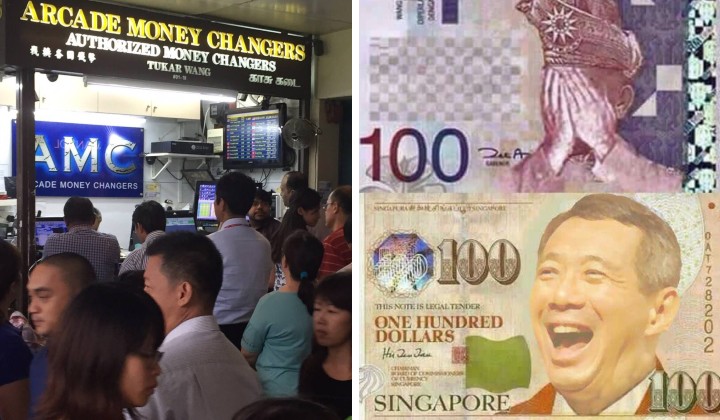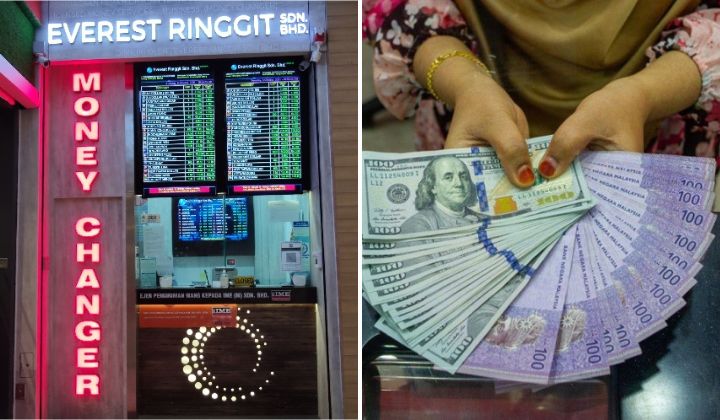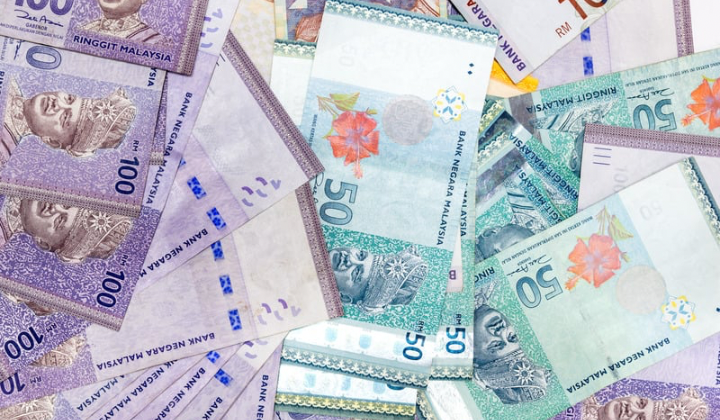Money Changers Run Out Of Currency As Singapore Dollar Hits All-Time High
Money changers across Singapore have been inundated with customers seeking to exchange their currency, with some running out of Malaysian ringgit by midday.

Subscribe to our FREE Newsletter, or Telegram and WhatsApp channels for the latest stories and updates.
The Singapore dollar has reached an unprecedented high against the Malaysian ringgit, causing a frenzy among money changers and sparking concerns about the economic implications of this currency shift.
On Tuesday (24 October), the exchange rate surpassed 3.5, a record-breaking milestone that has left many bewildered.
Money changers across Singapore have been inundated with customers seeking to exchange their currency, with some running out of Malaysian ringgit by midday.
As reported by AsiaOne, the bustling hub of The Arcade in Raffles Place, located in Singapore’s prominent Financial District, experienced a significant increase in activity.
Multiple money changers in the area displayed signs on their exchange boards stating that they had depleted their stock of the currency in question.
Orang Singapura berebut ke money changer utk menukar Ringgit setelah tukaran $1 = RM3.50
— CIKY🅰️NIE (@lady_bugg11) October 25, 2023
Ini menyebabkan bekalan Ringgit di luar pesisir kehabisan stock. pic.twitter.com/AhNNi93Dfy
Money Changers Grapple with Ringgit’s Depreciation as Buyers Wait for Better Rates
Despite the long queues, some money changers expressed frustration with the depreciation of the Malaysian ringgit, which they consider to be a loss.
Those who bought their ringgit at a higher price earlier are now selling it at a lower price due to the currency’s depreciation, leading some buyers to wait for even lower rates in the coming days.
The depreciation of the ringgit against the Singapore dollar has raised concerns about economic growth, inflation, and interest rate differentials between the two countries.
UCSI University Malaysia’s assistant professor of finance, Dr Liew Chee Yoong, told NST that this trend could influence Singaporean corporate decisions on business operations and potentially lead to increased investment in Malaysia as the cost of doing business becomes cheaper.
As netizens continue to monitor this unprecedented shift in currency exchange rates, it remains to be seen how this trend will affect the economic landscape of both countries in the long term.
Understanding the Implications of a Weaker Ringgit
The recent discussions surrounding the weakening of the Malaysian ringgit have sparked a mix of panic among netizens and a more measured response from economic experts.
While some view the situation as dire, experts suggest that there may be less cause for concern than meets the eye.
Economists suggest that there is no need for excessive panic when indicators of economic performance, such as low inflation, stable fiscal conditions, consistent money supply growth, GDP growth, and a stable banking sector, are showing positive signs.
Bank Negara Malaysia (BNM) governor Abdul Rasheed Ghaffour has also dismissed claims of an economic crisis despite the Malaysian ringgit reaching a historic low against the US dollar.
Despite the reassurances, there are still some who remain sceptical.
“Yesterday, BNM governor Abdul Rasheed Ghaffour said that the local economy is “not in a crisis” despite the ringgit hitting a new all-time low versus the US dollar.”
— Endie (@The_Endie) October 24, 2023
Dia kata takde krisis sebab gaji dia ratus ribu sebulan. SGD atau USD naik sampai RM6 pun hidup dia ok lagi. https://t.co/uoxOanLAyE
As these economic indicators continue to improve, it is expected that the ringgit will naturally strengthen over time.
It is important to note that discussions on this issue often become politicized, with individuals offering their opinions without necessarily possessing a deep understanding of economic principles.
“Will the M’sian ringgit slide to 5.0 against the USD”?
— Apurva Sanghi (@ApurvaSanghi) October 24, 2023
“MYR hits new low of 3.5 against SGD. Why is SGD not weakening”?
“Why aren’t high oil prices boosting MYR”?
My take on Ringgit woes:
TLDR? 3 takeaways👇🏾
Share your thoughts with us via TRP’s Facebook, Twitter, Instagram, or Threads.




